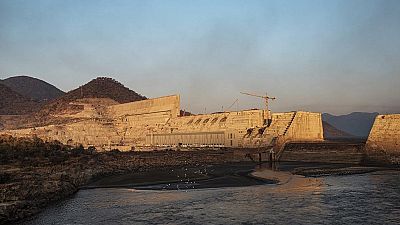Ethiopia
The dispute between Egypt, Ethiopia and Sudan over Addis Ababa’s construction of a gigantic dam on the Blue Nile has reached a new level. The issue is now on the table at the U.N. Security Council at the request of Egypt, supported by the United States.
On Monday, Egypt’s foreign minister urged the U.N. Security Council to adopt a resolution giving international clout to efforts to resolve the dispute over the hydroelectric dam.
According to Sameh Shoukry, the construction of the dam endangers the lives of 150 million Egyptians and Sudanese.
Shoukry said the draft resolution is in line with the outcome of an African Union summit on Friday where the leaders of Egypt, Sudan and Ethiopia agreed to return to talks aimed at reaching an agreement.
The Grand Ethiopian Renaissance Dam (GERD), set to be Africa’s largest hydroelectric project, has been a source of tension in the Nile basin ever since Ethiopia broke ground on it nearly a decade ago.
Ethiopia says the project is essential for its development. Addis Ababa has been vocal about its plans to start filling the reservoir in July.
In the meantime, the main protagonists are holding their ground. Cairo sees the renaissance dam as a threat to international security, while Sudan fears its negative impact on its population. The Nile is a lifeline, supplying both water and electricity to the 10 countries it passes through.
.embed-container { position: relative; padding-bottom: 56.25%; height: 0; overflow: hidden; max-width: 100%; } .embed-container iframe, .embed-container object, .embed-container embed { position: absolute; top: 0; left: 0; width: 100%; height: 100%; }













01:07
Only 35% of sustainable development goals on track to meet target, UN says
01:07
UN-Russia agricultural export memorandum will not be extended
01:13
Forty years and counting: CAR once again postpones local elections
01:14
Boeing reaches settlement with man who lost entire family in 737 MAX Crash
Go to video
ICC warns of a dire humanitarian crisis in Sudan as the war rages on
02:06
UN report reveals 4.6 million people struggling with food insecurity